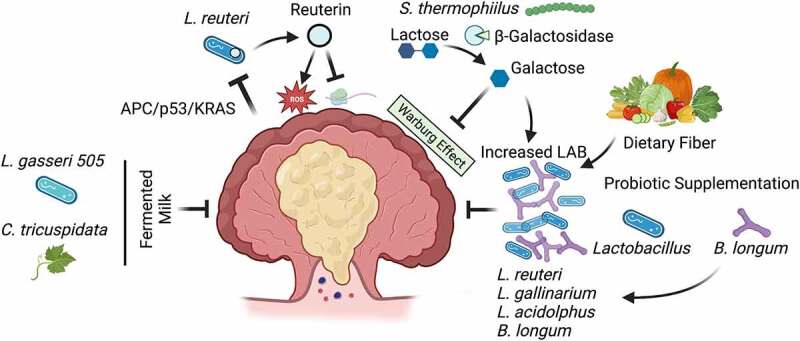Figure 3.

Lactic acid bacteria inhibit colorectal cancer tumorigenesis. Colorectal cancer (CRC) is characterized by a reduction in lactic acid bacteria (LAB). In a murine model of adenomatous polyposis coli/tumor protein 53/Kirsten rat sarcoma viral oncogene homolog (APC/p53/KRAS) mutant CRC, host metabolites directly inhibit Lactobacillus reuteri (L. reuteri) growth and the production of the microbial metabolite reuterin, that inhibits protein translation and generates cytotoxic reactive oxygen species in CRC cells to restrict cell growth. Streptococcus thermophilus (S. thermophilus) secretes the enzyme β-Galactosidase that produces galactose, that inhibits oxidative phosphorylation and Warburg metabolism in CRC cells. Various LAB inhibit tumor growth through a variety of indeterminate mechanisms, and the CRC-associated depletion of these species can be offset by increased abundance of galactose, dietary fibers, or the presence of other probiotic species. Finally, LAB may ferment dietary components such as Cudrania triscuspidata (C. tricuspidata) to produce antioxidants that restrict tumor growth.
